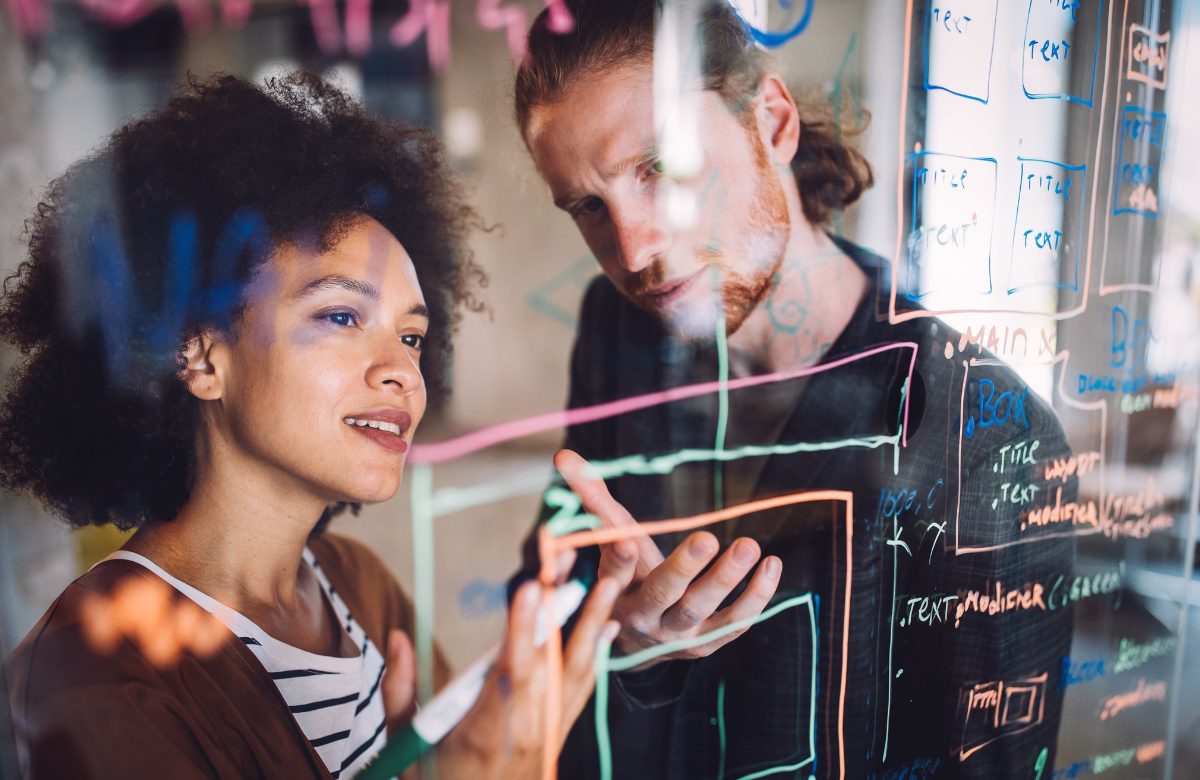
Human innovation, or humanising innovation, is a purpose we should all get behind; what can technology leaders do to support it?
To consider the human element of innovation is to question the rationale for growth and change. While we witness innovation everyday around us, some business and technology leaders believe it is time to start focusing on human innovation; we need to start questioning more about what is happening around us and how they can design products and services that cater for a better quality of life.
With Peter Stojanovic moderating, the speakers of the roundtable include:
- Jennifer Gill Didoni, Head of Cloud Portfolio, Vodafone Business
- Pravina Ladva, Group DTO, Swiss RE
- Monika Schulze, Head of Customer and Innovation Management, Zurich Insurance
- Sherry Aaholm, Chief Digital Officer, Cummins
At the Studio, the panelists came together for a virtual roundtable debate on how they consider human innovation and how that is challenging them and their teams to do and be better in their organisations.
Human innovation lessons
Technological innovation has brought to the world myriad possibilities—faster services, global communication and travel, superior healthcare, increasing levels of luxury—but to question how and why we change allows us to be more mindful about what we can and can’t change, and what we need to. Business—a formalisation of a community around a central mission—is merely an extension of that consideration; it’s no wonder that more firms are starting to consider a more human innovation approach based on an increasing awareness of how change affects our people.
“People talk about artificial intelligence and machine learning, but we haven’t scratched the surface of what human intelligence is really all about.”
It is urgent we consider our true values as human beings and how we want to live with technology in the future, agreed the technology leaders. And they considered what changes they have seen in their own lives and how they have translated that into learnings for their organisations.
Elsewhere, we are copying our intelligence to AI and robots, based on everything that is fact-based or can be measured, however our lives are mostly based on connections with others, emotions and feelings of what we experience in life. After a lifetime of working, people remember moments, experiences. Human innovation bridges those experiences with technology, not for the sake of the technology itself.
While neuroscientists argue that the architecture of the human brain can help build more intuitive technological models, new services that anticipate what consumers cannot articulate or have not yet imagined, or in other examples, about how to augment humans with technology, are already here. Although useful in some contexts these examples are not really addressing the real need of human innovation, which examines what we really want instead of submitting ourselves to further technological innovation without evaluation.
What next?
There is no real innovation without human innovation, considered the roundtable, and given these leaders are the ones leading the charge, respectively, at their organisations, the tenor of innovation within the boardroom has seen real change itself. What’s needed more today is collaboration instead of competition, as we struggle with a global pandemic, supply chain complexities and human inequality. Personal transformation will become the biggest disruption for current industrialised systems.
We need to build for people’s happiness, that is the core of human innovation, of humanising innovation. Products and services and the innovation within should be measured with more purpose, felt the panelists.
What we need to understand is how the powerful might use Artificial Intelligence to control us – and what we can do in response. Zeynep Tufekci’s TED talk on “We’re building a dystopia just to make people click on ads” in which she details how the same algorithms companies like Facebook, Google and Amazon use to get you to click on ads are also used to organise your access to political and social information. The negative consequences are already being seen.
“We should ask ourselves: What societies do we want for us and for future generations? How do we want to spend our time? How much do we want to spend on activities that fulfil us and contribute to our well-being? How do we reconcile with nature and with ourselves? As we answer these questions, we should rise to the challenge of health and sustainability, and start building pathways to the future we want.”
This roundtable on human innovation is sponsored by Vodafone.
SUBMIT A COMMENT
RELATED ARTICLES
Join the community
To join the HotTopics Community and gain access to our exclusive content, events and networking opportunities simply fill in the form below.
